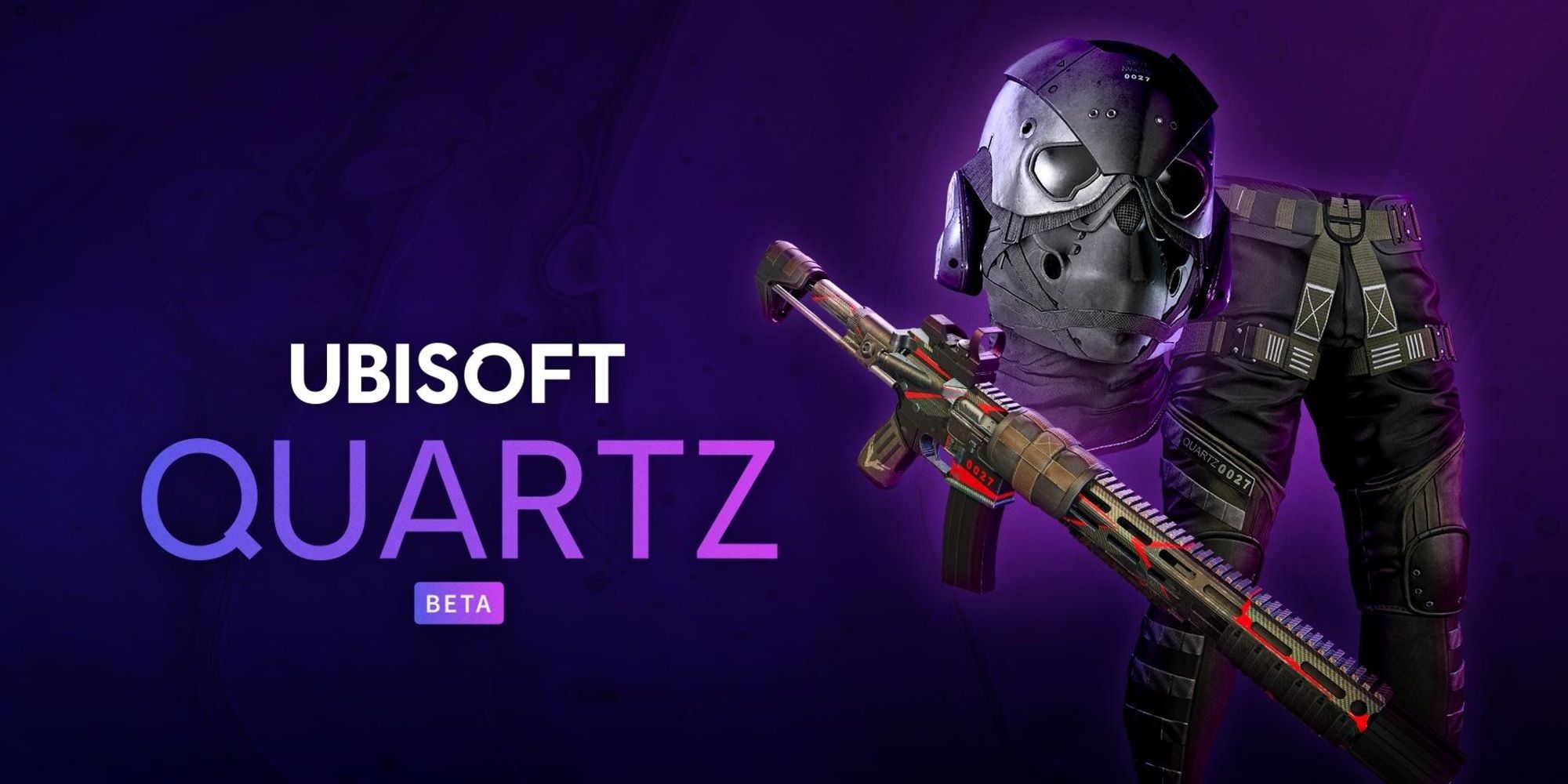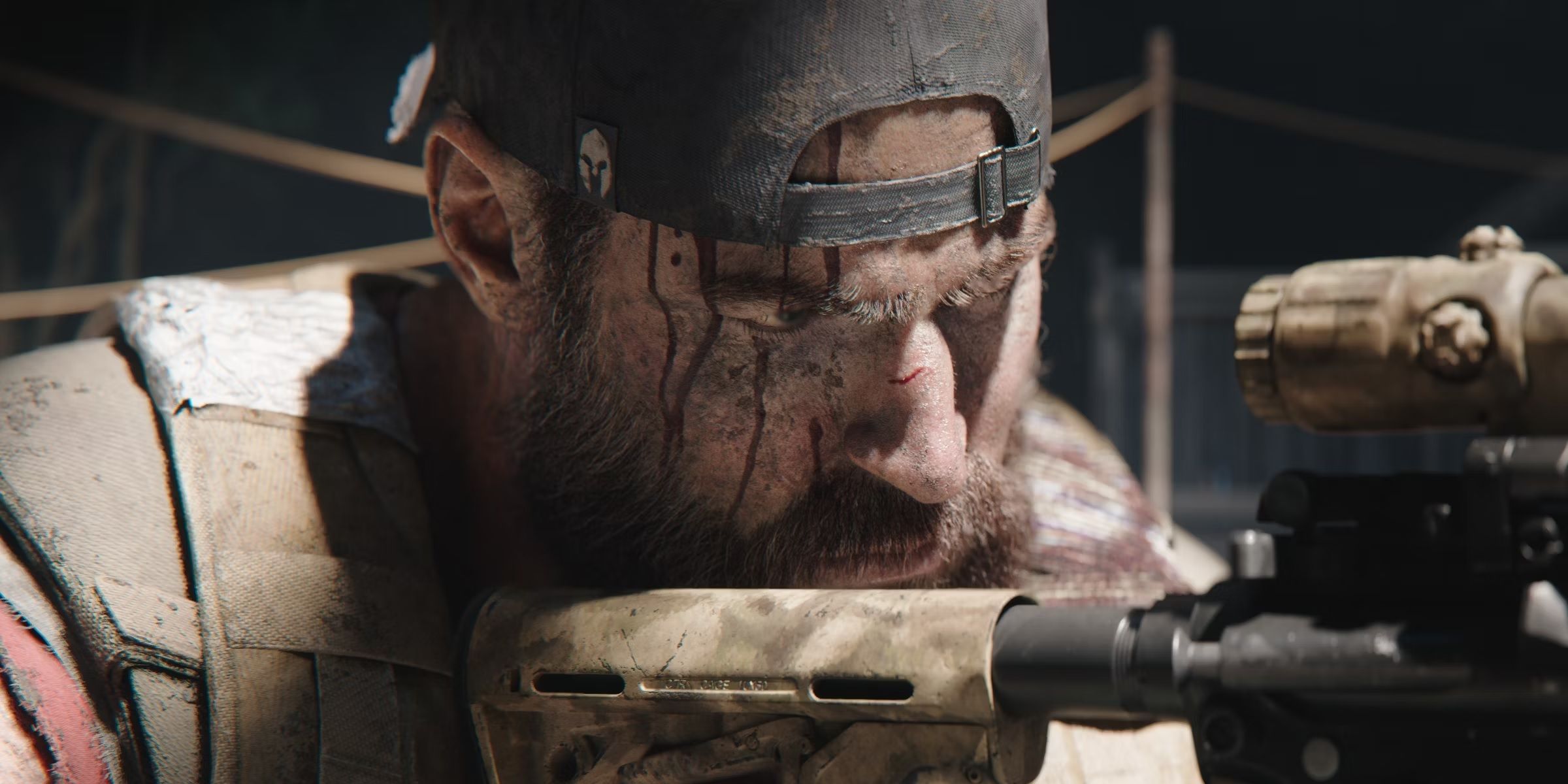I’ve never purported to be head of the Ubisoft fanclub, in fact I think gamers have been too easy on them despite the number of scandals surrounding the publisher over the last couple of years. One of these is their ongoing flirtation with NFTs. There are a million experimental blockchain games out there (such as notorious scam Cryptozoo or other MMO cons), but the trend thankfully hasn’t been picked up much by the AAA space. Square Enix is attempting something with their Symbiogenesis project and Sony seems to be considering it, but this is all conceptual for now—Ubisoft’s actually gone and bit the bullet in regard to mixing NFTs with games.
Beating everyone else to the punch, in 2021 Ubisoft put NFTs into Ghost Recon Breakpoint—allowing users to buy ‘digits,’ one-of-a-kind digital cosmetics that can be worn in-game and resold as their owner chooses. This was received with a wave of backlash on YouTube; the trailer received 16k dislikes to 1.3k likes and overwhelmingly negative comments. Now Ubisoft’s trying again, announcing a full-on blockchain game with Champions Tactics: Grimoria Chronicles—which got a similarly negative reception.
They’ve been pretty quiet about how blockchain tech will actually manifest in this game, but so long as it’s in there it’s going to cause problems. Despite myriad experiments, NFTs and games mix as well as oil and water; there’s every reason in the world for everyone to be against Ubisoft’s blockchain push.
For starters, there’s the obvious: NFTs, crypto, and all the rest of this blockchain tech is pretty bad for the environment. Now according to The Verge and many other outlets that have reported on the impact of the technology, it’s very hard to get numbers on exactly how bad they are—but some NFT transactions have been responsible for as many emissions as an EU individual’s two-month electricity usage.
Now, in fairness, Grimoria Chronicles will be built using the Oasys blockchain, which uses the far less energy-intensive ‘proof-of-stake’ system as opposed to the ‘proof-of-work’ system used for the aforementioned transactions. To avoid us getting into the weeds of both systems, all you need to know is that the NFTs in this game will be far less energy-intensive than average.
However, even if emissions are cut down greatly, NFT usage is still churning out carbon emissions for what is ultimately a game; it’s not worth causing extra environmental damage for digital cosmetics. Even if proof-of-stake nullified emissions (which it doesn’t), there’s still the problem of old-fangled proof-of-work systems being used if blockchain tech becomes normalized in gaming. There’s very little regulation in the space beyond the honor system; there’s nothing to stop a big triple-A player using proof-of-work beyond bad publicity (which hasn’t stopped many cashgrab moves before). In short, it might not be as big of a point as it was in 2022, but environmental impact is still a big concern around cryptocurrency.
There are a lot of problems with integrating NFTs into games. For starters, the market is pretty unstable with highly fluctuating prices and numerous crashes (in fact, a crash happened in the process of writing this, ensnaring some big ticket NFTs like those annoying Bored Ape ones). Considering Grimoria Chronicles will likely encourage a market between players, given that the unique items in Ghost Recon Breakpoint have already done just that, this risk will probably be placed onto the playerbase—something that games journo Jason Schreier pointed out a couple of years ago about play-to-earn blockchain game Axie Infinity, comparing it to a pyramid scheme.
Axie Infinity, as one of the biggest blockchain games on the market, brings us to the most game-specific problem of integrating these non-fungible tokens into the medium: games can be hacked.
One-of-a-kind collectibles are obviously scarce and will naturally become valuable in an ecosystem that demands them, and when buying and selling these collectibles becomes a core feature of the game, cheating’s incentivized. Just look at the aforementioned Axie Infinity which, according to Kotaku, lost $600m in a hack and has a culture of digital landlords that hire underpaid workers from the Philippines to play the game for them. The gamification of NFT sales seems to, ironically enough, drag the joy of gaming out of any experience it touches as these titles become entirely based around a rat-race for digital goods and exploiting poor workers. I’m not saying that Grimoria Chronicles will look exactly like Axie Infinity, but the track record for this sort of stuff is an ugly one.
Ubisoft’s push into NFTs isn’t worth it. Making blockchain tech more common in the triple-A space will only lead to more abuse of players and the environment. There’s no sufficient market regulation on this technology and there’s certainly no way studios can regulate blockchain games to perfectly prevent hacks, cheats, and exploitation of players. Ubisoft’s been told once that gamers don’t want this, they’re being told again, and they’ll continue to be told so long as they keep pursuing the blockchain pipe dream.
Credit: Source link




 Bitcoin
Bitcoin  Ethereum
Ethereum  Tether
Tether  XRP
XRP  USDC
USDC  TRON
TRON  Lido Staked Ether
Lido Staked Ether  Dogecoin
Dogecoin  Cardano
Cardano  Figure Heloc
Figure Heloc  Bitcoin Cash
Bitcoin Cash  Wrapped stETH
Wrapped stETH  WhiteBIT Coin
WhiteBIT Coin  Wrapped Bitcoin
Wrapped Bitcoin  Monero
Monero  Wrapped eETH
Wrapped eETH  USDS
USDS  Chainlink
Chainlink  Binance Bridged USDT (BNB Smart Chain)
Binance Bridged USDT (BNB Smart Chain)  LEO Token
LEO Token  WETH
WETH  Stellar
Stellar  Coinbase Wrapped BTC
Coinbase Wrapped BTC  Sui
Sui  Zcash
Zcash  Ethena USDe
Ethena USDe  Litecoin
Litecoin  Avalanche
Avalanche  Hyperliquid
Hyperliquid  Canton
Canton  Shiba Inu
Shiba Inu  Hedera
Hedera  USDT0
USDT0  World Liberty Financial
World Liberty Financial  sUSDS
sUSDS  Toncoin
Toncoin  Dai
Dai  Cronos
Cronos  Ethena Staked USDe
Ethena Staked USDe  PayPal USD
PayPal USD  Polkadot
Polkadot  Uniswap
Uniswap  USD1
USD1  Mantle
Mantle  Rain
Rain  MemeCore
MemeCore  Bittensor
Bittensor  Aave
Aave